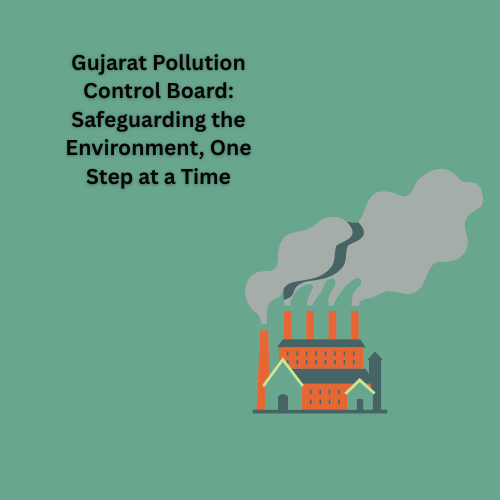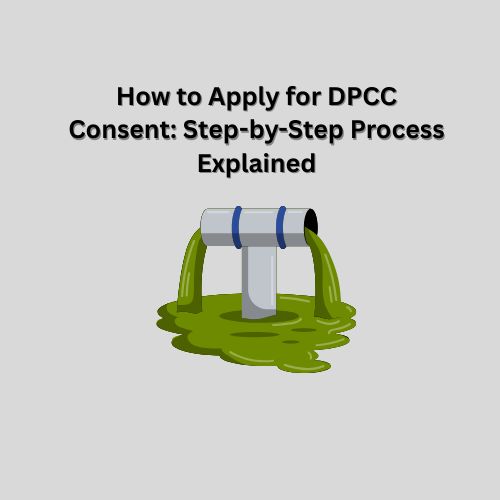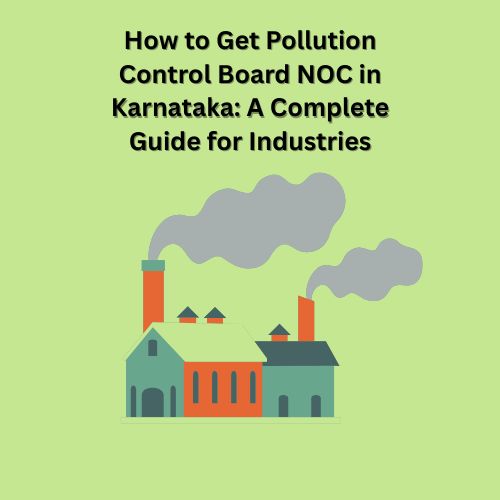Gujarat Pollution Control Board: Safeguarding the Environment, One Step at a Time

Strong 8k brings an ultra-HD IPTV experience to your living room and your pocket.
This article explores the functions of the GPCB, the importance of GPCB certification, the GPCB registration process, and how industries can obtain the necessary GPCB certificate to ensure legal compliance and environmental responsibility.
About the Gujarat Pollution Control Board (GPCB)
The GPCB was established in 1974 under the Water (Prevention and Control of Pollution) Act and later entrusted with responsibilities under the Air (Prevention and Control of Pollution) Act, 1981, and the Environment (Protection) Act, 1986. Its mission is to protect the environment by monitoring and controlling pollution levels, enforcing environmental laws, and guiding industries toward sustainable practices.
The GPCB works closely with industries, local governments, and stakeholders to implement pollution control technologies and maintain a balance between economic growth and environmental sustainability.
What Is GPCB Certification, and Why Is It Important?
GPCB certification is a legal requirement for all industries that generate waste, discharge effluents, emit air pollutants, or handle hazardous materials. This certification ensures that the industrial unit adheres to environmental norms and has adequate pollution control measures in place.
There are two primary types of consents under the GPCB:
Consent to Establish (CTE)—This is required before setting up a plant or facility.
Consent to Operate (CTO)—This is mandatory before starting commercial operations.
Together, these approvals form the basis of the GPCB certificate, which acts as proof that a business is compliant with environmental regulations in Gujarat.
Failing to obtain GPCB certification may result in:
Heavy penalties
Legal action
Suspension or closure of business operations
Ineligibility for government tenders and loans
Step-by-Step GPCB Registration Process
The GPCB registration process has been digitised for ease and transparency. Businesses must follow the steps below to obtain their GPCB certificate:
Industry Classification
First, determine the category of your industry—Red, Orange, Green, or White—based on the pollution potential. The level of scrutiny and documentation depends on this classification.
Online Application Submission
Visit the GPCB Online Consent Management & Monitoring System. Create an account and submit your application for Consent to Establish or Operate, along with all necessary documents.
Document Upload
The application must include project reports, site layout, water and energy consumption details, pollution control systems, and other environmental safeguards.
Fee Payment
Based on your industry type and size, a consent fee must be paid online.
Inspection and Verification
GPCB officials may visit your site to verify the submitted information and inspect pollution control mechanisms.
Approval and Certificate Issuance
Once the application is approved, the board issues the GPCB certificate, which is valid for a specific period and must be renewed before expiry.
Documents Required for GPCB Certification
To complete GPCB registration, the following documents are generally required:
PAN card and Aadhaar card of the applicant
Detailed project report
Site location and layout plan
Details of raw materials and end products
Process flowchart
Waste generation and disposal plan
Details of effluent treatment plants and air pollution control equipment
Land ownership or lease documents
Additional documents may be requested depending on the industry category and location.
Benefits of GPCB Certification for Businesses
While GPCB certification is a legal necessity, it also brings several long-term benefits for industries:
Regulatory Compliance
Avoid penalties and stay on the right side of the law.
Brand Credibility
Customers and investors are more likely to trust businesses that operate sustainably.
Access to Incentives
Environmental clearances and certifications often unlock subsidies, tax rebates, and green financing options.
Smoother Project Approvals
GPCB clearance is often a prerequisite for acquiring other government licenses and permits.
Enhanced Operational Efficiency
Many pollution control systems reduce waste and operational costs over time.
A Step Toward a Greener Gujarat
The Gujarat Pollution Control Board continues to play a critical role in making Gujarat a model state for environmentally responsible industrial development. It ensures that while industries grow, they do not compromise the ecological balance. By obtaining the necessary GPCB certificate and adhering to environmental regulations, businesses contribute to a healthier environment and build a reputation for accountability and sustainability.
Whether you're launching a new venture or expanding an existing one, completing your GPCB registration and securing valid GPCB certification should be among your top priorities. It’s more than a statutory formality—it’s a commitment to Gujarat’s future.
Note: IndiBlogHub features both user-submitted and editorial content. We do not verify third-party contributions. Read our Disclaimer and Privacy Policyfor details.






